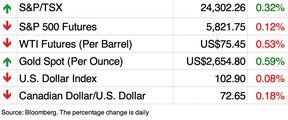Parliamentary Budget Officer looks at fuel charge through an employment and investment lens
Article content

As inflation soared in Canada, consumers increasingly called on the federal Liberals to abandon scheduled increases in the carbon tax as households struggled to manage the costs of daily living.
While politicians of different stripes continue to fight over the merits of the carbon tax, the Parliamentary Budget Officer released a new analysis on the costs of the charge for households.
Advertisement 2
Article content
It found that Canadians will collectively receive more back than they pay in federal carbon tax, but the picture is much less rosy when accounting for lost employment and investment, according to the PBO’s analysis.
The federal watchdog, which issued the report to correct errors in two earlier analyses, estimates that by 2030-31, people in provinces where the carbon tax is in place — all excluding Quebec and British Columbia — will “see a net gain, receiving more from the Canada Carbon Rebate than the total amount they pay in the federal fuel charge,” the report published Thursday from the PBO said.
The PBO came to its “fiscal only” conclusions by comparing the net cost of the federal carbon tax and the related goods and services tax against the amount received from the Canada Carbon Rebate.
“We estimate that the average household in each income quintile will see a net gain — except for the average household in the highest income quintile in Prince Edward Island, Nova Scotia and New Brunswick,” the report said, adding that the carbon tax is “progressive” because the lower a household’s income, the higher the amount of rebate it receives.
Article content
Advertisement 3
Article content
The net gain, the PBO said, ranges from 0.2 per cent of disposable income in Prince Edward Island to one per cent of disposable income in Saskatchewan.
An average household in the lowest income group will receive the largest net gain. The PBO estimates that by 2030-31, these households will receive rebates amounting to 4.5 per cent of disposable income.
Average households in the top income group in Prince Edward Island will experience the largest net loss, equivalent to 0.1 per cent of disposable income.
Overall, the new report estimates that the tax will cost households less than predicted in a similar report the PBO released in March 2023.
However, taking into account the “full economic cost” of the federal carbon tax including lost employment and investment income, the report found that the net cost will increase for all households across all income groups.
“We estimate that the average household in each of the provinces will see a net cost, paying more in the federal fuel charge and GST, as well as receiving lower incomes (due to the fuel charge), compared to the Canada Carbon Rebate they receive and the lower net taxes they pay (due to lower incomes),” the report said. “Moreover, in 2030-31, for all provinces, we estimate that the average household in the top three income quintiles will face a net cost when both fiscal and economic impacts of the federal fuel charge are considered.”
Advertisement 4
Article content
Accounting for the fiscal and economic impacts, the report estimates that the average Saskatchewan household in the lowest income group will reap the largest net gain — four per cent of disposable income — while the largest net loss will accrue to the average Saskatchewan household in the highest income group.
The carbon tax will also have a negative impact on the federal budget, the report said, estimating that the loss of employment and investment income will increase the deficit by $1.5 billion in 2024 and $4 billion in 2030-31.
The federal carbon tax was introduced in 2018. The current cost of the fuel charge is $80 per tonne of gasoline. It is forecast to rise to $170 per tonne by 2030-31.
It’s unclear whether the carbon tax will continue following the next federal election as frontrunner Pierre Poilievre, the leader of the Conservative Party of Canada who has made political hay with the “Axe the Tax” slogan, has vowed to scrap the program if he wins the next federal election.
Sign up here to get Posthaste delivered straight to your inbox.

Underlying United States inflation rose more than forecast in September, representing a pause in the recent progress toward moderating price pressures.
Advertisement 5
Article content
The core consumer price index — which excludes food and energy costs — increased 0.3 per cent from August and 3.3 per cent from a year ago, Bureau of Labor Statistics figures showed Thursday. The three-month annualized rate advanced 3.1 per cent, the most since May, according to Bloomberg calculations.
Economists see the core gauge as a better indicator of underlying inflation than the overall CPI. That measure rose 0.2 per cent from the prior month and 2.4 per cent from a year before, still the slowest annual rate since early 2021 and largely due to cheaper energy prices. — Bloomberg
- Bank of Canada releases its Business Outlook Survey and its Canadian Survey of Consumer Expectations for the third quarter at 10:30 a.m. Ottawa time.
- Today’s data: Statistics Canada releases jobs data for September and building permits for August.
- Earnings: JPMorgan Chase & Co., Wells Fargo & Co.

Advertisement 6
Article content
Recommended from Editorial
Billionaire Michael Lee-Chin has 18 principles he has stuck to in order to build his wealth. The Jamaican-Canadian chairman and chief executive of Burlington, Ont.-based private investment firm Portland Holdings Inc., says it is possible for other investors to follow these principles and build wealth, especially younger ones who have time and compounding on their side. Find out more about Lee-Chin’s 18 principles here.
Build your wealth
Are you a Canadian millennial (or younger) with a long-term wealth building goal? Do you need help getting there? Drop us a line at CVarga@postmedia.com with your contact info and your goal and you could be featured anonymously in a new column on what it takes to build wealth.
McLister on mortgages
Want to learn more about mortgages? Mortgage sthttps://financialpost.com/commodities/energy/alberta-oilsands-becoming-more-canadianhttps://financialpost.com/commodities/energy/alberta-oilsands-becoming-more-canadianhttps://financialpost.com/commodities/energy/alberta-oilsands-becoming-more-canadianrategist Robert McLister’s Financial Post column can help navigate the complex sector, from the latest trends to financing opportunities you won’t want to miss. Read them here
Today’s Posthaste was written by Gigi Suhanic, with additional reporting from Financial Post staff, The Canadian Press and Bloomberg.
Have a story idea, pitch, embargoed report, or a suggestion for this newsletter? Email us at posthaste@postmedia.com.
Bookmark our website and support our journalism: Don’t miss the business news you need to know — add financialpost.com to your bookmarks and sign up for our newsletters here.
Article content








